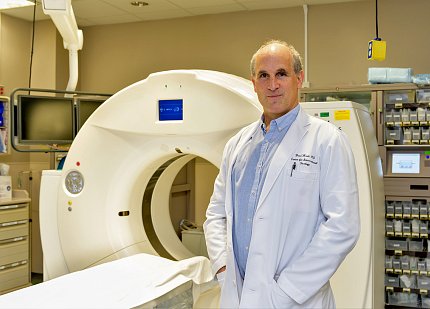Wood Receives Outstanding Researcher Award

The Radiological Society of North America (RSNA) has honored Dr. Bradford J. Wood, founding director of the NIH Center for Interventional Oncology, with the 2023 Outstanding Researcher Award. Recipients of this award have made significant contributions to radiology research over the last 15 years that have fundamentally changed the future of the field.
A trailblazer of interventional approaches to deliver lifesaving treatments to people with cancer, Wood exemplifies the character of a translational scientist who applies investigative techniques to real-world clinical practice.
“Brad Wood is the tip of the spear when it comes to innovative research in the field of interventional radiology,” said RSNA President Dr. Matthew Mauro. “I have admired him and his work for many years, as he dedicated himself to the advancement of this growing specialty.”
Wood leads a diverse multidisciplinary team that develops and translates devices, software and navigation approaches via public-private-academic partnerships to address unmet clinical needs. These technologies and techniques have improved outcomes for patients with cancer and other conditions.
He also serves as chief of interventional radiology at the Clinical Center and holds appointments at the National Cancer Institute, National Institute of Biomedical Imaging and Bioengineering, as well as the University of Maryland as adjunct professor of biomedical engineering.
Wood earned his medical degree in 1991 from the University of Virginia. He then completed fellowships in vascular and interventional radiology and in abdominal and interventional radiology at Massachusetts General Hospital (MGH) and Harvard Medical School.
He held clinical and teaching positions at MGH/Harvard and Georgetown University before he was recruited to NIH. From 2006 to 2008, he served as acting co-chief of radiology.
A mentor to hundreds of trainees, scientists, physician-scientists and engineers at the Clinical Center, Wood has overseen the authorship of several books and more than 600 peer-reviewed manuscripts. His papers have been cited over 40,000 times. He holds more than 50 patents for advanced systems and techniques that target disease.
